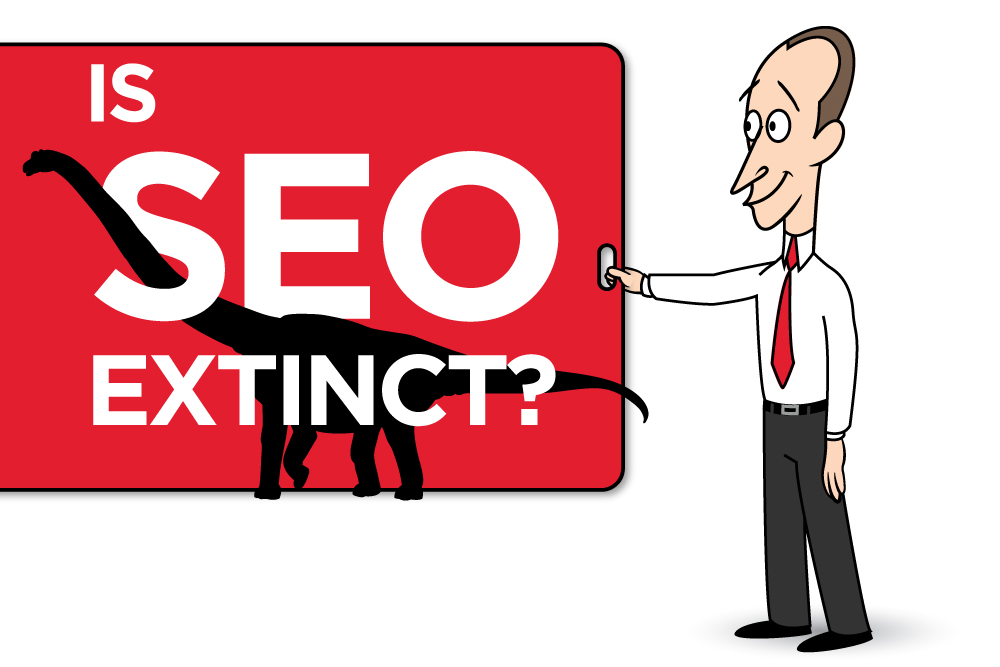There has been a lot of anticipation about the future of search engine optimization (SEO), with many believing it to be already extinct or going extinct. There are a few reasons why there is some indication of the irrelevance of SEO to some extent. Firstly, organic reach is going down, meaning there’s an increase in the competition for keywords, and as a result a rise in ad prices. Secondly, social media and mobile apps have captured a large market share, thus splitting online traffic into different niches.
But statistics related to SEO have a different picture to show. Research has shown that 93 percent of online experiences start with a search engine1. Also, seventy percent of the links search users click on are organic2. Given the contradicting situations, the question before marketers still remains the same: Is SEO extinct?
The reality of SEO
Search engines such as Google may be transitioning away from traditional practices, but SEO is certainly not dead nor will it die anytime soon. The focus has now shifted to high-quality, authentic, and interesting content, which pushes up search engine rankings. Although proper SEO is important, strategies should be complemented by the quality of content in order to thrive in a highly competitive search engine marketing environment.
First of all, search engines are undergoing a transformation, putting stricter ranking algorithms in place. Keyword stuffing, spamming, and poor-quality content will still be tagged as “black hat” practices and could be penalized by Google. Penguin and Panda algorithms have weeded out keyword-stuffed and spammed links, thus increasing the accuracy of results. Even the way people search information today has changed SEO, making mobile versions a mandate for achieving higher search rankings. As such, the importance of SEO cannot be overlooked.
If SEO sells, who’s buying?
It’s interesting to note that nearly 81 percent of internet users do research on a particular product before buying it3. As such, the importance of providing content that is relevant to users’ search queries is something brands simply cannot ignore. This is where SEO continues to exercise its influence on a brand’s search marketing strategies.
The rise of search technologies
Search technologies such as real speech patterns and voice command are also changing search engines in a great way. The ability to search for places and information in real time has made search engines highly advanced, providing users with an unprecedented experience. In fact, the user experience is one of the main factors driving search results. Good SEO that includes authoritative content lets users access and absorb content easily and drives the accuracy of search engine results.
Given the way search engines are changing, marketers have to change the way they approach SEO. Traditional SEO is not dead, but it’s certainly not the same anymore. Marketers should now focus on creating authoritative and relevant content that provides some value to the user.
COO Kevin Janosz answers the questions every marketer should be asking. Have a question? Tweet it to Kevin: @KevinJanosz.
1 Source: Search Engine Journal
2 Source: imFORZA
3 Source: Adweek

